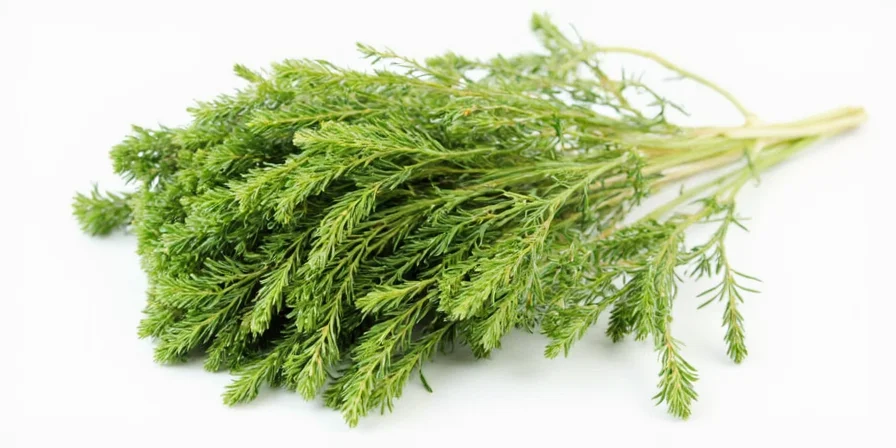Dill weed and dill seed come from the same plant but have distinct flavors, uses, and storage requirements—understanding these differences prevents costly kitchen mistakes.
Dill weed and dill seed are not interchangeable ingredients. Dill weed refers to the fresh or dried leaves of the dill plant, offering a bright, grassy flavor perfect for finishing dishes. Dill seed comes from the mature plant's seeds, delivering an earthy, nutty taste ideal for pickling and baking. This comprehensive guide explains exactly when to use each, precise substitution ratios, shelf life differences, and science-backed growing tips—helping you avoid common culinary errors and maximize flavor.
Key Differences at a Glance
| Feature | Dill Weed | Dill Seed |
|---|---|---|
| Part of Plant | Leaves and stems | Fully matured seeds |
| Flavor Profile | Fresh, grassy, citrusy | Earthy, nutty, slightly bitter |
| Best Used In | Sauces, dressings, fish dishes | Pickling, breads, stews |
| Form Available | Fresh, dried, frozen | Mainly dried whole or ground |
| Shelf Life | 6–12 months (dried) | Up to 3–4 years |

Dill weed (left) features delicate feathery leaves, while dill seed (right) comes from the plant's mature seed heads.
The Science Behind Dill's Dual Personality
Dill's distinct components stem from biochemical divergence. Leaves (dill weed) contain high concentrations of volatile carvone compounds, delivering bright citrus notes ideal for fresh applications. Mature seeds develop dominant dillapiole and limonene compounds, creating the warm, earthy depth essential for pickling and baking. This explains why substitutions often disappoint—these aren't just texture differences but fundamental chemical distinctions.
When to Use Dill Weed: Maximizing Fresh Flavor
- Ideal for dishes where fresh flavor is key—tzatziki, dill-infused oils, potato salad, and seafood dishes
- Add during the final 5-10 minutes of cooking to preserve volatile flavor compounds (dried versions lose up to 70% of aromatic compounds compared to fresh)
- Best stored in airtight containers away from light; frozen dill weed maintains quality for up to 6 months
- Perfect substitute for chervil or fresh tarragon in French cuisine when those herbs aren't available
When to Use Dill Seed: Unlocking Depth and Complexity
- Essential for traditional dill pickles (the name comes from dill seed, not the weed)
- Excellent in rye breads, potato dishes, hearty stews, and Scandinavian gravlax
- Toast seeds lightly before use to enhance flavor complexity without bitterness
- Can be crushed with a mortar and pestle for deeper infusion in rubs and spice blends
Pro tip: For authentic dill pickles, use both dill seed AND dill weed heads for layered flavor.
Substitution Guide: What to Do When You're Out
Substituting incorrectly can ruin your dish. These precise ratios maintain flavor integrity:
If You Need Dill Weed But Only Have Dill Seed:
- Use ¼ teaspoon dill seed for every tablespoon of fresh dill weed required
- Add a squeeze of lemon juice to mimic the citrus notes missing from seed
- Only suitable for cooked dishes (never in fresh preparations like tzatziki)
If You Need Dill Seed But Only Have Dill Weed:
- Use 3 tablespoons fresh dill weed for every teaspoon of dill seed required
- Add ¼ teaspoon caraway seeds to approximate earthy notes
- Only works in cooked dishes where flavor can meld (not for pickling)
Grow Your Own Dill: Maximize Harvest Value
Dill is one of the easiest herbs to grow, providing both weed and seed from a single plant:
- Plant dill in well-draining soil with 6+ hours of sunlight daily
- Harvest young leaves early for continuous growth (never remove more than ⅓ of the plant)
- Allow 1-2 plants to fully mature for seed production—seeds ripen 3-4 weeks after flowering
- Harvest seeds when they turn brown but before they drop from the umbel
- Store seeds in airtight containers in a cool, dark place for maximum shelf life
Save 50% on dill by growing your own—harvest weed early, seeds late from the same plant.
Common Questions Answered
Why Is It Called "Dill Weed"?
"Weed" refers to the leafy part of the plant in botanical terms—not the illicit kind. This usage dates back to Old English (as 'weod'). The name describes the plant's growth habit, not any psychoactive properties.
Are Dill Seeds and Caraway Seeds Interchangeable?
No. While both belong to the Apiaceae family and share visual similarities, caraway seeds contain different carvone isomers that create a sweeter, spicier profile. Using them interchangeably will noticeably alter your dish's flavor profile—dill seed has more earthy notes while caraway leans toward anise.
What's the Best Way to Store Dill?
Fresh dill weed: Trim stems and place in a glass of water like flowers, covered loosely with a plastic bag in the refrigerator (lasts 1-2 weeks). Dried dill weed: Store in airtight container away from light (6-12 months). Dill seeds: Keep whole seeds in dark glass jar (3-4 years). Never store either near heat sources or in humid environments.
Professional Chef Tips for Perfect Dill Use
- For pickling: Combine dill seed, fresh dill heads, and garlic cloves in each jar for authentic flavor
- For baking: Toast dill seeds before grinding to enhance flavor without bitterness
- For sauces: Add dill weed during the final minute of cooking to preserve volatile oils
- For longevity: Freeze fresh dill weed in ice cube trays with olive oil for ready-to-use portions
- For maximum value: Harvest dill weed continuously while allowing select plants to go to seed
Master dill usage by understanding that weed provides brightness while seed delivers depth—never interchangeable but often complementary.










 浙公网安备
33010002000092号
浙公网安备
33010002000092号 浙B2-20120091-4
浙B2-20120091-4